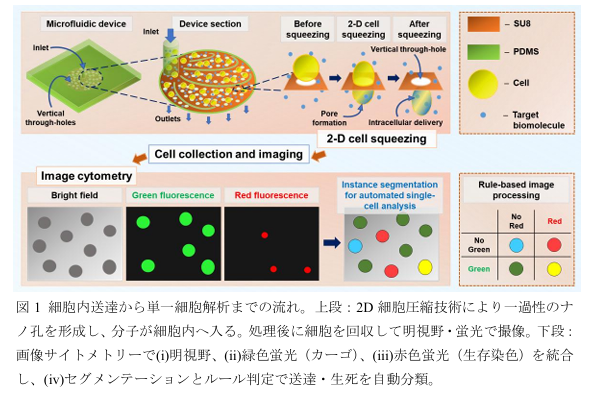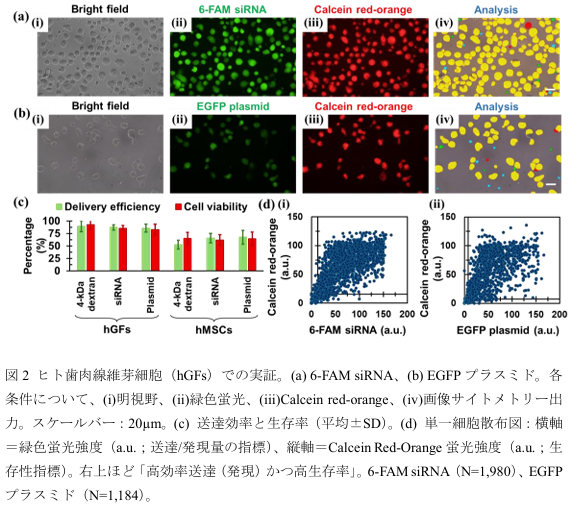Researchers at the Indian Institute of Technology (IIT) Madras and Toyohashi University of Technology (TUT) have developed an integrated platform that combines a massively parallel through-hole cell-squeezing mechanoporation device for high-throughput intracellular delivery, and an automated single-cell image-cytometry pipeline built on Mask R-CNN. The device guides cells through an array of up to 62,000 tiny through-holes that are narrower than the cell diameter. A brief, gentle squeeze creates transient membrane pores that admit biomolecules into the cell interior, then reseal, allowing cells to recover. The automated analysis system uses deep-learning to report cell size, the fraction of cargo-positive cells, the fraction of viable cells, and per-cell fluorescence intensity in about 83 seconds. By coupling scalable intracellular delivery with rapid, automated evaluation, the platform expands what can be accomplished in a single day—from large-scale screening and diagnostics to practical cell manipulation and future point-of-care gene-editing workflows.
Bibliographic Information
“High Throughput Intracellular Delivery Using a 2D Cell-Squeezing Mechanoporation Device and Its Analysis by a Deep Learning Model”,Pulasta Chakrabarty, Abinaya R, Ryoma Suzuki, Srikanth Vedantam, Suresh Rao, Moeto Nagai,
Tuhin Subhra SantraAdvanced Healthcare Materialse02472First published: 21 August 2025
DOI:https://doi.org/10.1002/adhm.202502472
<関連記事>
https://www.eurekalert.org/news-releases/1099713


